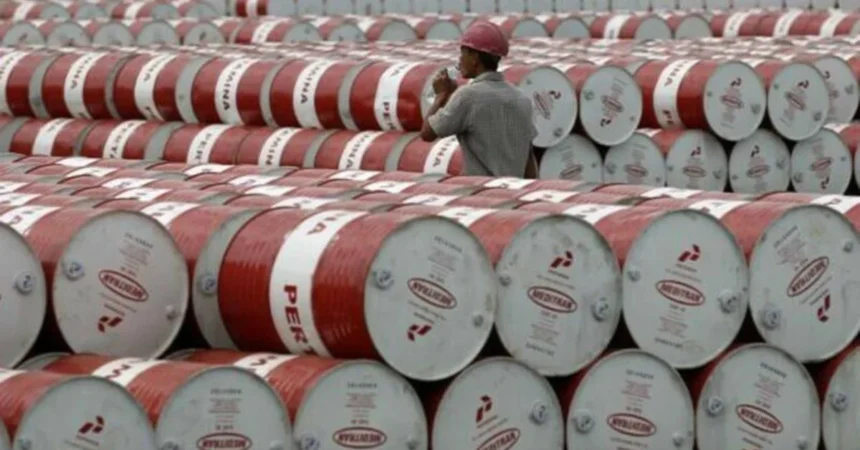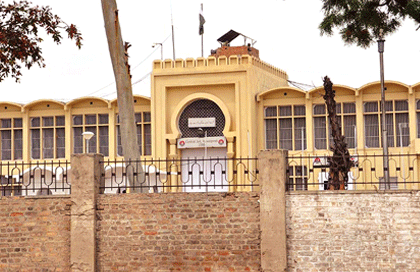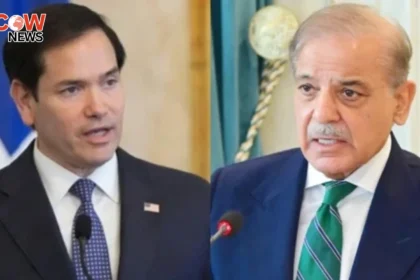In a troubling development for the Pakistani economy, the Federal Board of Revenue (FBR) has revealed that the smuggling of petroleum products has surged to an alarming value of Rs 396 billion. This revelation has raised serious concerns among government officials, policymakers, and stakeholders in the oil and gas sector. The FBR is now contemplating stringent measures to combat this rampant issue, which has far-reaching implications for the country’s economy, tax revenue, and energy security.
- The Scope of Petroleum Smuggling in Pakistan
- Contributing Factors to Petroleum Smuggling
- Economic Implications of Petroleum Smuggling
- Government Response and Strategies
- Historical Context of Petroleum Smuggling in Pakistan
- Case Studies of Successful Interventions
- The Role of Stakeholders
- Future Outlook and Challenges
The Scope of Petroleum Smuggling in Pakistan
Petroleum smuggling is a pervasive problem in Pakistan, driven by various factors, including high domestic fuel prices, weak enforcement mechanisms, and the demand for cheaper alternatives among consumers. Smugglers exploit the significant price differential between locally produced and imported petroleum products, leading to widespread illegal activities along the country’s borders.
The smuggling of petroleum products not only undermines the government’s revenue collection efforts but also poses serious challenges to the stability of the energy market. The FBR’s alarming figure of Rs 396 billion highlights the extent to which illicit activities have permeated the sector, indicating a need for urgent action to address the crisis.
Contributing Factors to Petroleum Smuggling
Several factors contribute to the flourishing of petroleum smuggling in Pakistan:
- High Fuel Prices: The domestic prices of petroleum products in Pakistan are often higher than those in neighboring countries. This price differential creates an incentive for smugglers to transport fuel across borders where it can be sold at a profit.
- Weak Law Enforcement: Corruption and inefficiencies within law enforcement agencies hamper efforts to curb smuggling. Insufficient manpower, lack of resources, and inadequate training often leave border areas vulnerable to illegal activities.
- Demand for Cheaper Alternatives: Many consumers, particularly in lower-income brackets, seek out cheaper fuel alternatives to cope with rising living costs. This demand fuels the smuggling industry as consumers opt for illegally obtained products.
- Geographical Challenges: Pakistan’s extensive borders with Afghanistan and Iran provide ample opportunities for smugglers to transport petroleum products without detection. The rugged terrain and remote areas complicate enforcement efforts.
- Lack of Awareness: Many consumers are unaware of the implications of purchasing smuggled petroleum products. The absence of public awareness campaigns regarding the consequences of smuggling further perpetuates the problem.
Economic Implications of Petroleum Smuggling
The economic ramifications of petroleum smuggling extend beyond lost tax revenue. The following points outline some of the significant impacts on Pakistan’s economy:
- Loss of Revenue: The FBR’s estimate of Rs 396 billion in smuggling activities translates into substantial losses in tax revenue that could have been utilized for public services, infrastructure development, and other essential government expenditures.
- Market Distortion: Smuggling creates an uneven playing field for legitimate businesses, leading to unfair competition. Legal fuel distributors struggle to compete with illegally sourced products, resulting in reduced market share and profitability.
- Energy Security Concerns: The illicit trade in petroleum products undermines the country’s energy security. Dependence on smuggled fuel can lead to supply disruptions and instability within the energy sector, impacting consumers and businesses alike.
- Impact on Domestic Producers: Domestic oil and gas companies face significant challenges due to the influx of smuggled products. The presence of cheaper, illicit alternatives can harm local production, hindering investment and growth in the sector.
- Increased Corruption: The smuggling industry is often intertwined with corruption, as bribes and illicit payments are made to law enforcement officials to facilitate the illegal trade. This perpetuates a cycle of corruption that undermines governance and accountability.
Government Response and Strategies
In response to the alarming rise in petroleum smuggling, the FBR is exploring several potential measures to combat this issue effectively:
- Enhanced Monitoring and Surveillance: The FBR plans to increase monitoring and surveillance along borders and within the domestic market to detect and deter smuggling activities. Advanced technologies, such as drones and surveillance cameras, may be deployed to bolster enforcement efforts.
- Strengthening Law Enforcement: Collaborating with law enforcement agencies to strengthen their capacity to tackle smuggling is crucial. Training programs, resource allocation, and improved coordination between agencies can enhance overall effectiveness in curbing illegal activities.
- Public Awareness Campaigns: Educating the public about the dangers and consequences of purchasing smuggled petroleum products is essential. Awareness campaigns can encourage consumers to opt for legitimate sources, fostering a culture of compliance and support for local businesses.
- Price Regulation and Subsidies: The government may consider regulating fuel prices to reduce the incentive for smuggling. Providing targeted subsidies to lower-income consumers can also help alleviate the burden of high fuel costs while discouraging illegal purchases.
- Collaboration with International Agencies: Engaging with international organizations and neighboring countries to combat cross-border smuggling can yield positive results. Collaborative efforts, including information sharing and joint operations, can enhance the effectiveness of enforcement measures.
- Utilizing Technology: Embracing technology to streamline operations within the oil and gas sector can improve transparency and accountability. Implementing tracking systems and digital platforms for fuel distribution can help monitor the supply chain and reduce opportunities for smuggling.
Historical Context of Petroleum Smuggling in Pakistan
Petroleum smuggling is not a new phenomenon in Pakistan. Over the years, various governments have attempted to address the issue, often with limited success. Historical context reveals a pattern of rising smuggling activities during periods of economic instability, high inflation, and fluctuating fuel prices.
Past initiatives to combat smuggling have included increasing border patrols, implementing stricter penalties for smugglers, and launching public awareness campaigns. However, inconsistent enforcement and corruption have often undermined these efforts, leading to the persistence of the problem.
Case Studies of Successful Interventions
Several countries facing similar challenges have successfully implemented measures to combat petroleum smuggling. Analyzing these case studies can provide valuable insights for Pakistan:
- Nigeria: Nigeria, plagued by oil theft and smuggling, launched a comprehensive strategy involving technology, community engagement, and international cooperation. The implementation of satellite monitoring and community awareness programs helped reduce illegal activities significantly.
- Mexico: Mexico’s government employed technology to monitor fuel theft and smuggling along its borders. The establishment of a national oil pipeline protection plan improved security and accountability within the oil sector, leading to reduced illegal activities.
- India: India has faced similar challenges with petroleum smuggling, particularly in border regions. The government implemented a multi-faceted approach involving technology, community engagement, and strict penalties for smugglers. Enhanced monitoring systems helped identify and apprehend smugglers effectively.
The Role of Stakeholders
Addressing the issue of petroleum smuggling requires a collaborative effort involving various stakeholders, including government agencies, law enforcement, businesses, and civil society. Each stakeholder has a role to play in combating smuggling and ensuring the stability of the petroleum market:
- Government Agencies: Federal and provincial governments must work in tandem to formulate and implement effective policies to combat smuggling. Coordination among various agencies is crucial to ensure a unified approach.
- Law Enforcement Agencies: Police and border security forces play a vital role in detecting and preventing smuggling activities. Providing them with the necessary training and resources is essential for effective enforcement.
- Businesses and Industry Associations: Legitimate businesses must actively participate in combating smuggling by promoting transparency in their operations and cooperating with authorities to report suspicious activities.
- Civil Society: Non-governmental organizations and community groups can raise awareness about the dangers of smuggling and advocate for stronger government action. Engaging citizens in the fight against smuggling fosters a sense of collective responsibility.
Future Outlook and Challenges
As the FBR deliberates on potential actions to combat petroleum smuggling, the road ahead is fraught with challenges. Political instability, economic fluctuations, and entrenched corruption may hinder efforts to address this pressing issue.
Moreover, as long as the price differential between legally produced and smuggled petroleum products remains significant, smugglers will likely continue to exploit the situation. Therefore, a comprehensive and multi-faceted approach that addresses both supply and demand factors is essential for long-term success.
In conclusion, the fight against petroleum smuggling in Pakistan requires the concerted efforts of government agencies, law enforcement, businesses, and civil society. By implementing effective strategies, raising public awareness, and fostering collaboration, Pakistan can tackle this issue and safeguard its economy and energy security.
#PetroleumSmuggling #FBR #PakistanEconomy #EnergySecurity #TaxRevenue #Corruption #LawEnforcement #PublicAwareness #OilAndGas #BorderSecurity #FuelPrices #SmugglingCrisis #GovernmentResponse #EconomicImplications #PetroleumIndustry #CommunityEngagement #InternationalCooperation #MarketStability #PakistanNews #EnergyPolicy







